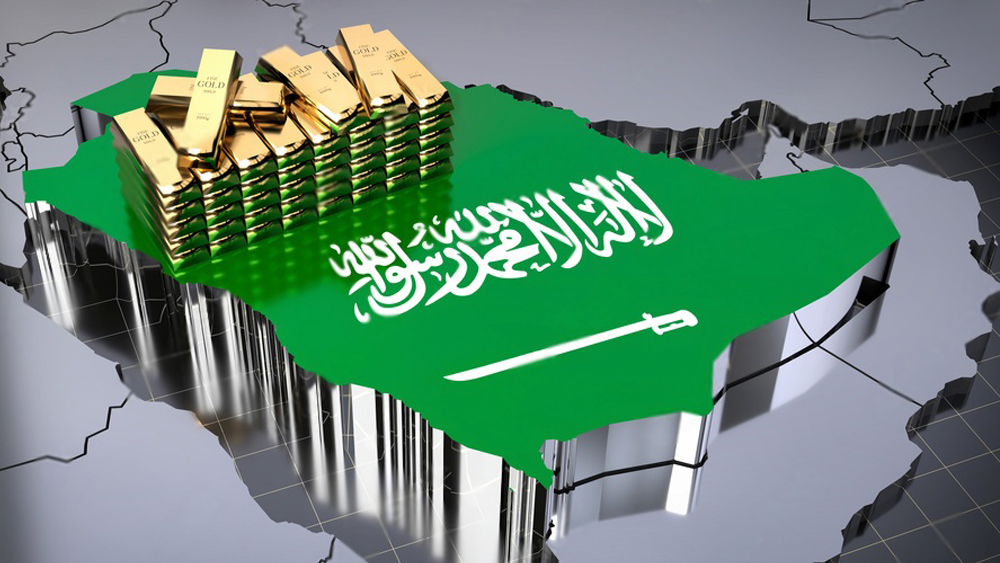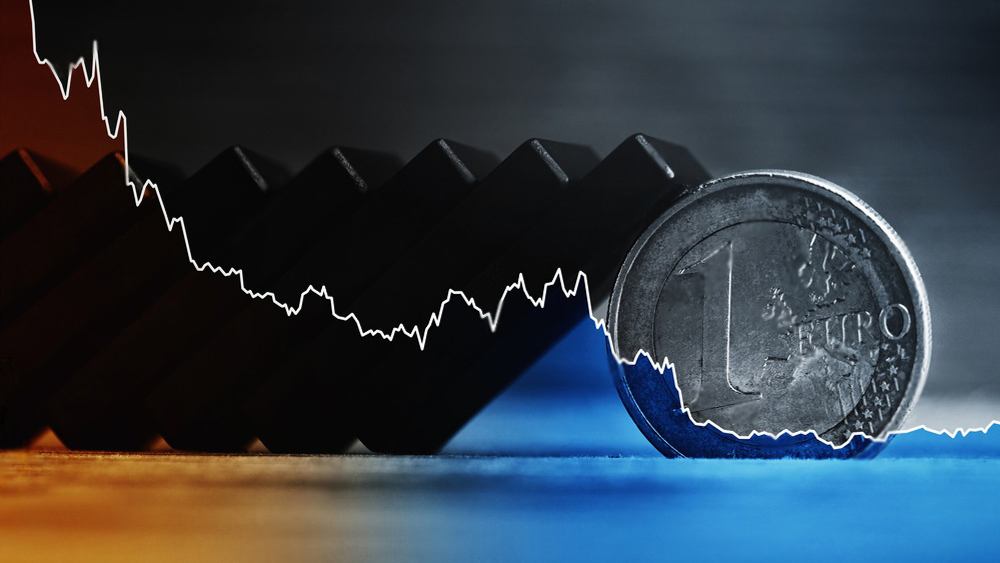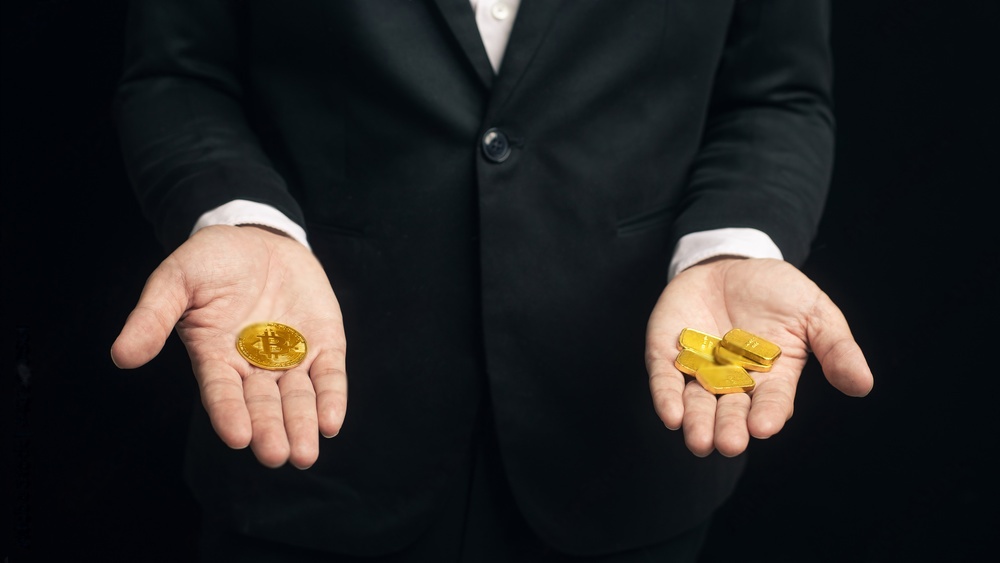The wealth built on oil in Saudi Arabia is legendary. For a long time, the kingdom has been preparing for a post-oil era. There are hardly any sectors of the economy or major players in big business in which the Arabs have not been invested for a long time, constantly seeking new investments.
Officially, the kingdom ranks 15th in gold reserves with 3,231 tonnes (as of December 2023), but the official declaration of gold reserves may not be 100% reliable in all countries.
As the USA has recently refrained from disclosing its gold reserves, and external audits of US depots are often very difficult, it is quite possible that there are less than the assumed 8,133 tonnes from 2023.
It is assumed that China and Russia possess significantly more yellow metal than they officially report.
Gold remains the only money, free from debt and inflation. The old JP Morgan made this clear.
But why the thesis that the Saudis drive the gold price? After all, they do not stand out through disproportionate purchases, nor are they among the producers.
Nevertheless, they leverage the gold price by devaluing paper money, particularly the dollar and the euro, through their financial and global political activities.
One factor is the petrodollar. Over 50 years ago, the USA (after abandoning the gold price peg) and the royal house agreed to primarily settle their oil in dollars. In return, the USA promised military protection and access to technologies.
All the dollars the Saudis received for their oil were exchanged at the Fed for US bonds. They received and still receive ongoing interest and eventually the principal amount. This made them a significant financier of the USA; they were and are already a major supplier of black gold. However, they were increasingly troubled by importing inflation with the dollar. They preferred to sell off US bonds, reducing their holdings, and furthermore, to move away from the petrodollar by selling their oil in other currencies. Understandably, they were also disturbed by the fact that the USA, through sanction mechanisms, dictates to whom one may sell oil and to whom not.
The fact that they joined the BRICS alliance in 2024 is also a strong signal towards independence.
All these are not new issues, but now it gets interesting.
While the EU and the USA have been talking for some time about expropriating Russian assets, there is now a backtrack. The current discussion is about “merely” freezing the payment of interest and profits. What and who is behind this?
Russia is a significant creditor of the USA and European countries through its holdings of government bonds. They have thus provided a large sum of loans, which are nothing more than bonds. This money and the due interest are to be withheld from the Russians because they do not comply with the political demands of the debtors.
While it might be a windfall for the cash-strapped European and American treasuries, it increasingly cuts them off from the trust that underpins monetary transactions. And that worldwide. Thus, besides Russia, China and other BRICS countries, as well as England and other industrial nations and partly allies, are observed diversifying their currency reserves at the expense of the dollar and moving further away from the still-world-leading currency. While in 2010, 75% of global trade was settled in dollars, currently it is about 55%! For countries like the USA, which have more debt than GDP, this is a severe blow. Not only do they have to pay significantly higher interest rates to get fresh loans, which are then financed by new loans, but a debtor who uses his debt as leverage for compliance is also less likely to receive money from solvent actors who are unwilling to risk their political independence.
On July 8, 2024, news agencies worldwide reported that Saudi Arabia had announced it would sell off its European bonds if Russian assets were expropriated. This would particularly hit the French hard, who would lose a reliable creditor. With a national debt of over 110%, 50% above the Euro stability criteria, this is a harsh blow. The simple path of new borrowing would have to be replaced by financial restructuring, but the socialist majority in France’s political system knows as much about business economics as a donkey does about algebra.
The French cannot turn to the Russians and Chinese, and they do not trust the USA themselves.
By turning away from the Western credit and sanctions path, the Saudis ultimately promote the rise of real inflation-free exchange mediums like gold, goods, and services. The steady rise in the gold price is quite convenient for them. Because for gold, they can get anything they need worldwide.
Joining BRICS, which is known to be strategically working on a gold-backed trade currency, fuels this process and also shows the future economic orientation of the desert kings. The bulk of the world population and thus future consumption and prosperity lie neither in North America nor Europe. The action is in Asia and the Southern Hemisphere. Russia was forced onto this path and, with only 15% national debt and growing GDP with decreasing import dependency from the West, has no motivation to make a 180-degree turn. When the great partners from the West blow up their pipelines and cut them off from the payment system, they seek new horizons and have already found them with China, India, the Arabian Peninsula, Africa, South America, and many other Asian countries. With a reliable supplier, even during political conflicts like in the Cold War, who also has a full range of natural resources in abundance, one is happy to trade.
If more and more countries decouple from the credit financing system and trade with hard exchange mediums, this naturally means a significantly higher weight for gold. Credit currencies might possibly only be traded with large premiums to offset the many risks.
The military might of the USA loses its terror. Whoever presses the red button first dies second but does not survive; this rule applies in the nuclear age.
The financing of over 800 (!) military bases plus aircraft carrier fleets as visible power presence increasingly bursts the US budget, just like the proxy wars overseas.
In anticipation of a collapsing financial system, not only states but also companies and private individuals are increasingly securing their ships.
So that you are not left in the rain when it crashes, continuously stock up on gold and silver; this has financially secured people well for thousands of years, today and especially in the future.




